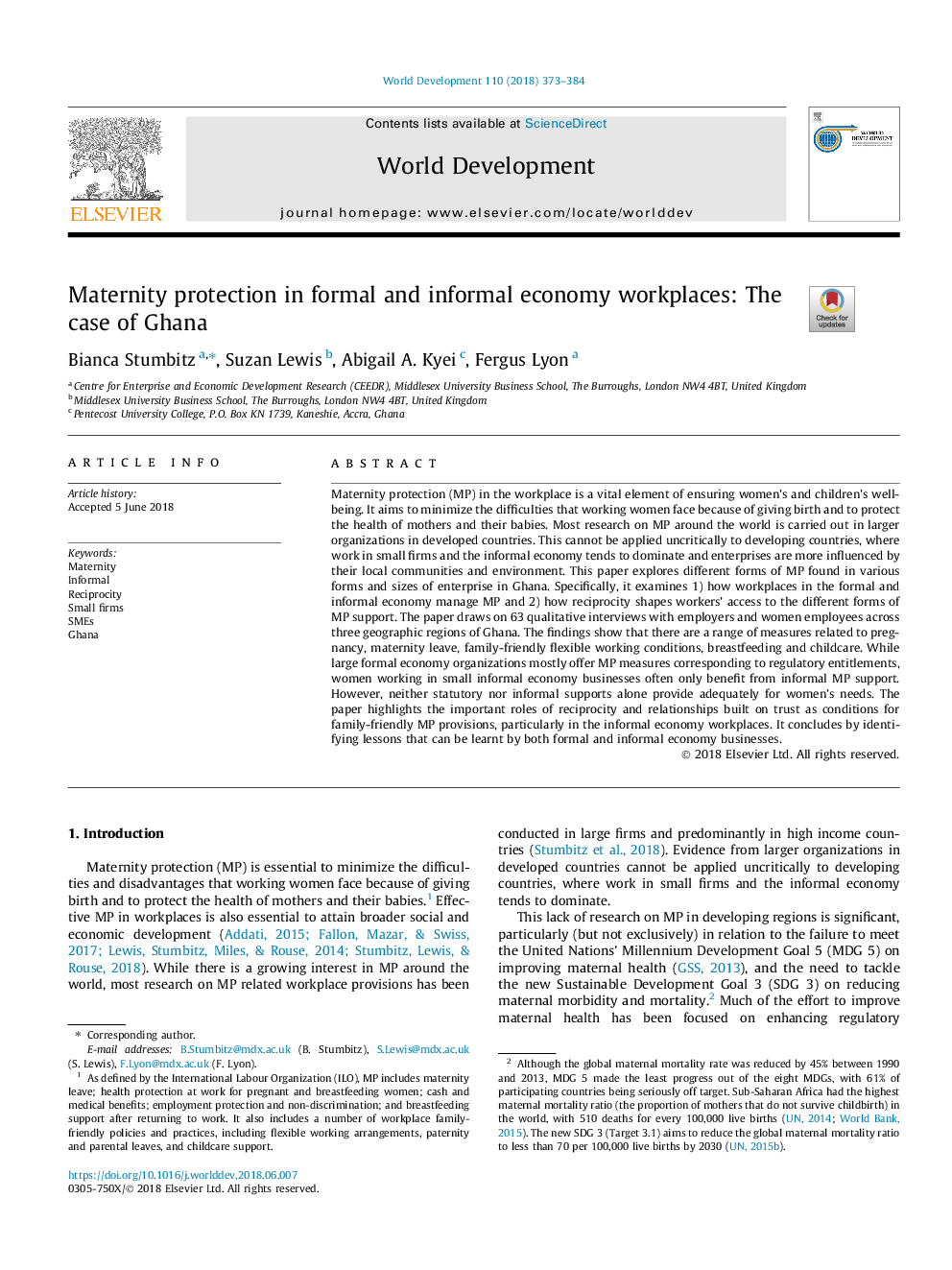| Article ID | Journal | Published Year | Pages | File Type |
|---|---|---|---|---|
| 7391462 | World Development | 2018 | 12 Pages |
Abstract
Maternity protection (MP) in the workplace is a vital element of ensuring women's and children's wellbeing. It aims to minimize the difficulties that working women face because of giving birth and to protect the health of mothers and their babies. Most research on MP around the world is carried out in larger organizations in developed countries. This cannot be applied uncritically to developing countries, where work in small firms and the informal economy tends to dominate and enterprises are more influenced by their local communities and environment. This paper explores different forms of MP found in various forms and sizes of enterprise in Ghana. Specifically, it examines 1) how workplaces in the formal and informal economy manage MP and 2) how reciprocity shapes workers' access to the different forms of MP support. The paper draws on 63 qualitative interviews with employers and women employees across three geographic regions of Ghana. The findings show that there are a range of measures related to pregnancy, maternity leave, family-friendly flexible working conditions, breastfeeding and childcare. While large formal economy organizations mostly offer MP measures corresponding to regulatory entitlements, women working in small informal economy businesses often only benefit from informal MP support. However, neither statutory nor informal supports alone provide adequately for women's needs. The paper highlights the important roles of reciprocity and relationships built on trust as conditions for family-friendly MP provisions, particularly in the informal economy workplaces. It concludes by identifying lessons that can be learnt by both formal and informal economy businesses.
Related Topics
Social Sciences and Humanities
Economics, Econometrics and Finance
Economics and Econometrics
Authors
Bianca Stumbitz, Suzan Lewis, Abigail A. Kyei, Fergus Lyon,
